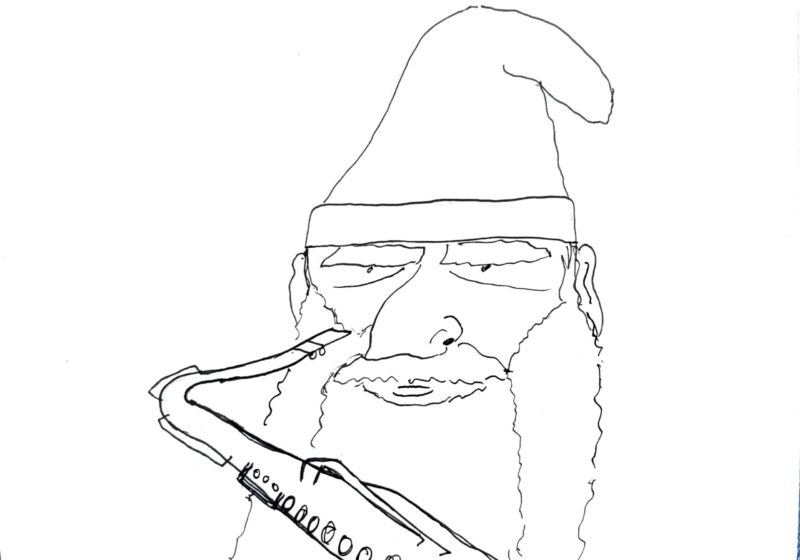Editor’s Note: This is part one of a two-part series about alcohol on campus.
There’s a reason Yellowjacket Weekend might not seemed as spirited as Dandelion Day for some students. It doesn’t have any spirits.
D-Day is more of a drinking holiday than Yellowjacket Weekend, but that wasn’t always the case. Before 1984, Yellowjacket Day — as it was then only a one-day event — served alcohol, a Campus Times story from that year reported. The University gave away free beer. But it stopped that year, and that could have been the start of the festival’s downfall. The event drew thousands of people, and while attendees enjoyed many of the same attractions the weekend offers today — carnival rides, concession stands, performances — guests “lamented the lack free beer,” the CT reported.
Free beer is something most students would probably never expect from the University today, and as such, “lack of free beer” is likely not a complaint UR students would make. But what if D-Day went the way of Yellowjacket Day, and there was no longer any campus-wide (if unofficial) holiday of drinking?
“I would say that based on the numbers, Dandelion Day is no longer a day that we expect significantly more alcohol incidents than any other day of the year,” said Karen Zenilman, the associate director of student conduct at the Center for Student Conflict Management.
Is this the trend for UR? Are we becoming more sober and more serious as time goes on?
Thirty years ago, the change in chugging was thanks to federal law. The National Minimum Drinking Age Act of 1984 was passed by Congress that July. It didn’t raise the drinking age at all, but penalized states that sold alcohol to people under 21, giving them slightly less federal funding. Also, it was only aimed at people under 21 buying alcohol. It didn’t say anything about them drinking it. Still, it was the end of an era for America, and at UR students definitely saw the glass as half empty. Yellowjacket Day no longer had free beer to get students used to the idea of dry events. But it still didn’t prepare them for the real hangover, when the drinking age officially rose to 21 in New York the next year.
“What is the University of Rochester coming to?” moaned Sigma Epsilon brother Clifford Corrall in a letter from the Oct. 22, 1985, Campus Times. “The past few months have brought many drastic changes to the UR social scene. No longer are there huge dances in [the Men’s Dining Center]. No longer are there five fraternity parties on a given weekend. No longer is the Wilson Commons a place to unwind and socialize with fellow students. No longer is the UR a place to have some fun.”
In addition to the more sober campus culture, one major change elicited headline after headline in the 1985 Campus Times.
“The Rat, Center for Campus Social Life.”
“Rat First Casualty of Alcohol Policy.”
“Senate Rejects Plan to Return Beer to Rat.”
No, UR students weren’t offering sacrificial booze to some long-forgotten rat mascot-deity. The Rat was the affectionate nickname for the Rathskellar, a campus pub in present-day Rocky’s that was shut down in the summer of ‘85.
That fall, in a Campus Times piece titled “Sorry, the Rat Doesn’t Live Here Anymore,” then-freshman Carol LaBonne reported on a Genesee Beer–fueled almost-funeral for the Rat. Students sat in the Pit as they drank together in protest of the loss of their favorite campus hang-out.
LaBonne’s piece captured the unrest of the University as the impending higher drinking age approached. The Campus Times ran piece after piece on students unsure about how to deal with the change. One editorial titled “Let’s Be Adults” told students to stop complaining because alcohol would simply be like marijuana: illegal, but still available, and enjoyed in private. One op-ed didn’t come from a student, but from then-Governor Mario M. Cuomo. He lauded the benefits of a higher drinking age — “[reduced] automobile accidents, personal injuries, and fatalities” — and praised New York university students who had come up with creative alternatives to drinking. He named Cornell students who had converted a bar to serve mocktails, and Binghamton fraternity brothers who hosted a “suitcase party.” Everyone brought a suitcase to the party, and they raffled off a beach vacation.
“Suitcase Party” doesn’t quite have the same ring to it as “Margaritaville,” which was hosted by Delta Upsilon last month. Both themes may sound sort of tropical, but “Margaritaville” definitely sounds less sober. And it was true to its name. Red solo cups abounded. As it was the frat’s first open party after a year-long social probation, hordes of students flocked to the house. Getting away from the sweaty, dark basement with thumping music and bumping bodies and up the stairs to the equally-crowded kitchen took about 15 minutes and some serious elbowing.
In 1985, following the drinking age change, some groups at UR tried to embrace sober social lives. One Sept. 27 CT article reported on a substance-free Students’ Activities Board dance in Douglass that was “very poorly attended.” Many showed up drunk, reportedly, and some even got sick at the dance.
“‘I bet it wouldn’t have happened had we been serving alcohol,” student Hugh Hurwitz was quoted as saying.
The same article reported on how fraternities were dealing with the change. Delta Sigma Phi held a non-alcoholic party outside of Kendrick. The fact that Delta Sigma Phi is no longer on campus may hint at the success of their non-alcoholic efforts.
Editor’s Note: Information that could be considered incriminating has now been removed from the article.




